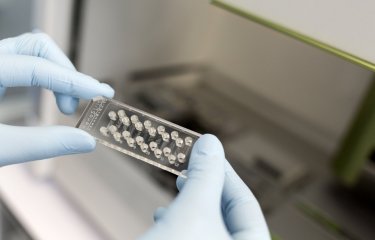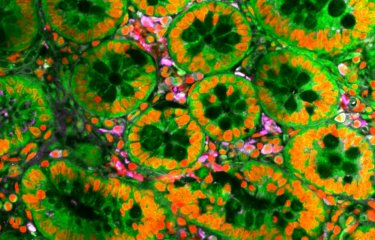The National Institute of Allergy and Infectious Diseases (NIAID), part of the National Institutes of Health (NIH), has awarded 11 grants to establish the Centers for Research in Emerging Infectious Diseases (CREID), including a coordinating center. One of those centers, and the sole center coordinated by a non-American organization, is the Pasteur International Center for Research on Emerging Infectious Diseases (PICREID), headed by Anavaj Sakuntabhai at the Institut Pasteur in Paris.
The National Institute of Allergy and Infectious Diseases (NIAID), part of the National Institutes of Health, has awarded 11 grants to establish the Centers for Research in Emerging Infectious Diseases (CREID). The global network will involve multidisciplinary investigations into how and where viruses and other pathogens emerge from wildlife and spillover to cause disease in people.
The Pasteur International CREID, headed at the Institut Pasteur in Paris
Pasteur International Center for Research on Emerging Infectious Diseases (PICREID) will take an inter-continental One Health approach: “It is designed to improve the capacity to respond rapidly and effectively to outbreaks,” explains Anavaj Sakuntabhai, M.D., Ph.D., Principal Investigator and head of the Functional Genetics of Infectious Diseases Unit at the Institut Pasteur, in Paris.
PICREID will identify factors influencing emergence and transmission at the virus, vector, and reservoir levels that can lead to epidemics in suspected spillover conditions. The consortium will concentrate on:
- high priority RNA viruses with epidemic potential in Africa (Rift Valley Fever virus (RVFV), Crimean Congo Hemorrhagic Fever Virus (CCHFV)) and in Southeast Asia (dengue virus (DENV));
- unknown viruses (Disease X) identified from symptomatic surveillance or vector sampling.
PICREID will focus on significant needs in the study of these pathogens, including:
- harmonizing pathogen identification and diagnostic tools;
- improving existing diagnostic tools with more rapid, efficient, and specific point-of-need tools for better response to an outbreak in remote areas, including unknown viruses;
- refining understanding of the prevalence, transmission, and adaptation of pathogens in humans, animal reservoirs, and insect vectors in specific environments;
- improving knowledge of disease pathogenesis and immune responses in hosts leading to drug/vaccine development.
The pasteurian teams involved
This five year, multi-million dollar project will involve no fewer than six teams and a dozen top researchers at the Institut Pasteur in Paris (including Etienne Simon-Lorière, Marc Eloit, Simon Cauchemez, Félix Rey and Jean-Claude Manuguerra). These teams will collaborate with three other institutes of the Institut Pasteur International Network – Institut Pasteur of Dakar (led by Gamou Fall), Centre Pasteur of Cameroon (led by Serge Sadeuh) and Institut Pasteur of Cambodia (led by Tineke Cantaert) – as well as with researchers at the University of Leipzig and Kyoto University. By sharing samples, data, tools and analyses, this ambitious international project aims to allow the scientific community to better understand and respond to viruses with pandemic potential.
Kelly Prifti is joining the team as the PICREID Project Manager, based at the Institut Pasteur (Paris).
PICREID grant number – 1U01AI151758-01.
Website: Pasteur International Center for Research on Emerging Infectious Diseases (PICREID)
For more information: kelly.prifti@pasteur.fr / PICREID@pasteur.fr
For more information about the CREID network, visit: creid-network.org
This study is part of the priority scientific area Emerging infectious diseases of the Institut Pasteur's strategic plan for 2019-2023.
For more information, please visit





